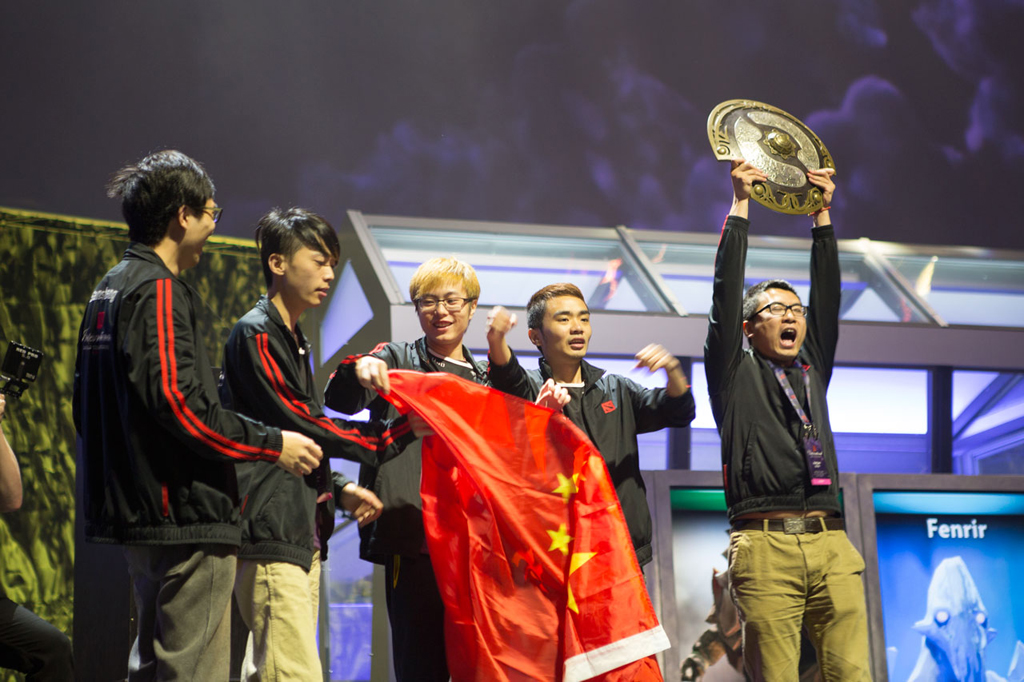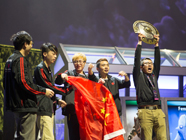Electronic sports is a billion-dollar industry which has both perks and problems.

As recently as just five years ago, a teenager with thoughts of being a professional gamer would have been roundly dismissed as being naïve or idealistic. The prospects for a 15-year-old today are not as dim however. And the main reason behind this shift? Money.
In recent years, savvy revamps and a series of hugely successful titles have grown the financial clout of Electronic Sports, or eSports, exponentially. More so than ever, gaming is as serious a business as sports, with match commentators, dedicated TV slots and full-time salaries to boot. And judging by recent trends, the industry is only going to get bigger. Estimates put the gaming industry at around $67 billion dollars in 2012, and the figure is expected to grow to $82 billion by 2017 according to financial magazine Forbes.
One of the best examples of eSport’s growth would be the case of the five-a-side strategy game Defence of the Ancients, known commonly as DotA. Created initially as a user-made ‘custom map’ on the fantasy game ‘Warcraft III’, its finances skyrocketed when it was bought over by gaming giant Valve. The American company improved the game’s production quality and re-released it in 2011 as a standalone title – DotA 2.
Valve’s business savvy saw them tap into the game’s large community to raise funds by introducing the Compendium – a $10 virtual book that allows buyers to receive special in-game items over the course of the tournaments. The concept was a hit and the Compendiums sold in the millions, which helped push tournament winnings to amounts that are previously unheard of.
In a scene where prize-pools rarely exceeded five figures, Valve shocked the community in 2011 when it announced that its annual tournament, The International (Ti), had a prize-pool of US$1.6 million, including $1 million for the grand prize. Since then, support for the competition has only gotten stronger, so much so that this year’s edition, Ti4, has a prize-pool of $11 million, an almost 10-fold increase from just four years ago.
“Tournaments like MLG (Major League Gaming) used to be a big deal, but their prize pools never exceeded $100,000. Ti has blown every other event out of the water and made the professionals more motivated than ever. It brought about whole new era in online gaming,’’ said 20-year-old Or Yong Fang, a third-year student from Republic Polytechnic and a former professional gamer.
Yong Fang pursued gaming professionally after his ‘O’ level examinations, moving to Taiwan for a year and living with four other teammates in an apartment that also served as their training area. He practised for 12 to 15 hours a day, and even had a dedicated manager that was in charge of peripherals like meals and scheduling.
“You have to practise until the game becomes second nature. That’s what the pros do, and that’s the level you must reach in order to take up gaming competitively.”
The money that is being pumped into lucrative games like DotA and World of Warcraft has also helped give eSports a greater sense of legitimacy. Last year, Canadian Danny Le, a professional player of DotA offshoot League of Legends (LoL), made history by becoming the first gamer to be granted a P-1A visa to work in the United States, the same visa given to professional athletes like David Beckham. Sports network ESPN is also broadcasting Ti for their US audiences for the first time this year, another sign that eSports is garnering mainstream appeal.
Things look rosy for eSports at the moment, but the allure of wealth can also mean an increase in corruption and exploitation, much like in traditional sports. In 2013, professional LoL player Cheon Min-Ki jumped from a 12-storey window in a suicide attempt after he was exposed to be an accomplice in a match fixing scandal. He, along with four other players, were reported to have been unwittingly duped and coerced into losing matches on purpose so that their manager, Noh Dae Chu, could win money by betting on the underdogs they were playing against.
Though such incidents are currently few and far between, it gives us an insight into how easily the reputation of eSports can be compromised.
Lennert Yang, a 32-year-old owner of local LAN shop Versus City, thinks that the eSport’s gold rush is a double-edged sword, but it is ultimately the players and managers who have to uphold the integrity of the industry.
“The money will increase the skill level of players and take the games to new heights, but it will also make the industry more business-centric as the stakes become higher. We may even see a case whereby the best teams are able to mix and match players from all the other teams, just like in football, and the imbalance would inevitably lead to wavering integrity.”
“I think the managers play a pivotal role in the team’s cohesiveness as he serves as he is in charge of a lot of the financial matters of a team. If the manager has integrity, his close relationship to the players will often mean that they will remain honest as well.”
Clearly, on or off line, the same sporting rules apply.






